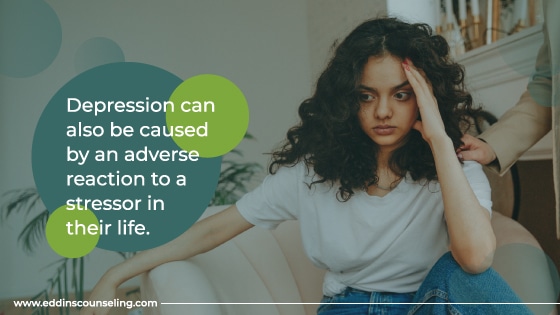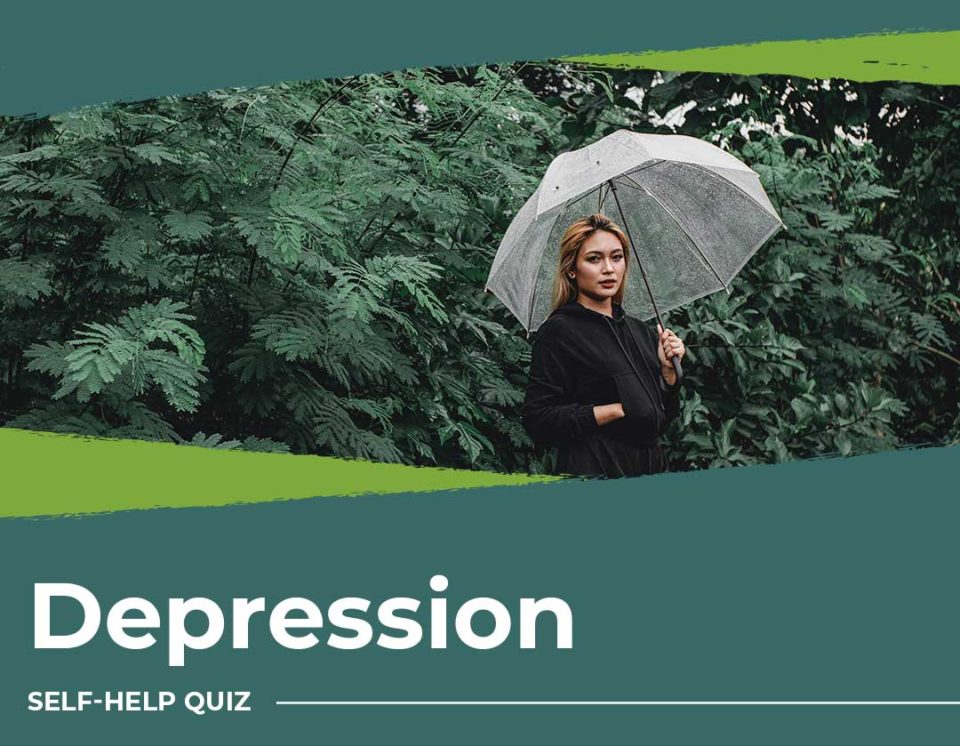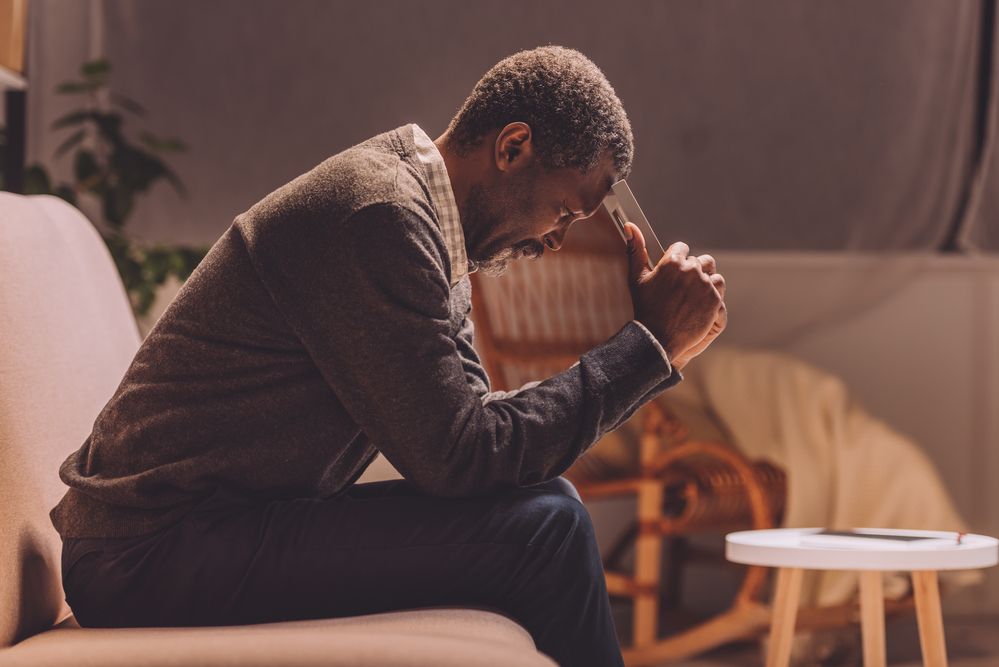March 19, 2021
Why Depression Needs to Be Talked About
Written by Sara Lane
Posted in Depression, Emotional & Mental Health and with tags: causes of depression, depression
Depression is a common mental disorder in people of all ages.
Depression affects millions of people each year and has the potential to lead to severe health problems. It’s normal to feel sad from time to time, but if you’re consistently miserable and it affects your quality of life, you might have clinical depression.
It’s a debilitating condition, but it can be managed with therapy, talking with a counselor, modifying behavior and thought processes, and implementing changes to your lifestyle.
Read more: Depression vs Sadness
What Are Some Signs That a Person is Depressed?
Depression is the most common mental illness in America. And lately, there has been an increased focus on mental health that has brought attention to conditions that affect people every day, including depression and anxiety.
Depression is generally characterized by irritable moods, persistent crying, changes in sleeping patterns, increased anxiety, and chronic fatigue. However, the symptoms vary from person to person.
The symptoms of depression are not always the same in older adults as they are in children. While they are typically similar, it’s still important to get help for the specific type of depression you’re battling.
Depression is a severe condition that requires treatment.
You can avoid significant health repercussions because it can wreak havoc on your physical and emotional health. If you feel like you’re unable to get out of bed, cannot go out in public, or feel like your mind is constantly racing, this could be a sign of depression.
Possible symptoms include:
- Low mood and high-stress levels – It’s normal to have a low mood occasionally, but those who experience it may show signs of depression. These people are also more likely to develop other psychological problems, such as irritability, restlessness, and impulsivity.
- High stress causes your body to produce more of a hormone called cortisol – related to irritability and poor mood. Chronic stress has been shown to increase the risk for heart disease and other health conditions. People who are unable to manage their stress levels may become depressed in the long run.
- Feeling sad and worthless – not all people experience these negative feelings. Everyone has good times, even when they are depressed. However, for someone who is depressed, these good times are easily interrupted or short-lived. They may have problems making decisions. They may isolate themselves, have problems concentrating, lose interest in things that used to interest them, become easily irritable, and have poor relationships with friends or family.
- Low energy levels – a common sign of major depression. People with this illness may feel completely overwhelmed and unable to function. Some people will experience feelings of helplessness and hopelessness, and they may lose touch with reality. Low energy levels often occur due to feelings of guilt or shame for having an illness as it weights them down. Additionally, they may not be able to care for themselves properly; they may be overeating, might not be getting enough sleep, are weighed down by physical ailments, financial problems, or relationship issues.
When left untreated, depression may worsen and become dangerous for the person inflicted with it.
Remaining untreated also increases the likelihood that other physical and mental health symptoms will worsen, such as chronic fatigue, weight gain or loss, changes in appetite, frequent headaches and migraines, social withdrawal, and sleep disturbances.
You may not experience all of these symptoms. People with depression may manifest depression symptoms differently from others.
If you suspect that the symptoms you’re experiencing are signs of depression, you should seek professional help.
What Increases the Risk for Depression?
There are certain medications and everyday lifestyle habits that can cause or worsen depression. These chemical substances and patterns can be considered risk factors for depression.
If you have any of these risk factors, it’s recommended that you see your doctor right away. Your doctor will be able to discuss with you the options available to treat your depression symptoms.
Depression can also be caused by an adverse reaction to a stressor in their life. These stressors can range from a loved one’s death to the loss of a job or income.
Although people with this illness feel sadness and anxiety during times of loss, they also feel overwhelming feelings of failure, worthlessness, guilt, and other negative feelings.
Why Talking about Depression is Essential
Everyone feels down or sad once in a while, but those feelings typically pass with time. Depression, however, is a serious mental illness that causes distressing physical and mental ramifications.
People who suffer from depression will likely feel worthless, helpless, depressed, or even suicidal throughout each day.
There are various ways to treat and manage depression and discussing it can help alleviate the condition and possibly treat the illness. Unfortunately, talking about being depressed is sometimes extremely difficult.
It’s not the easiest thing to do because talking about feeling ‘down’ or ‘blue’ can be frightening, especially when talking about something as private and personal as depression. However, talking about your feelings is very beneficial.
Benefits of Talking About Depression
Many people who suffer from depression talk about their condition in therapy. Therapy can benefit those who want to talk about their problems, find out more about why they feel the way they do and create new solutions.
Cognitive behavioral therapy can be very helpful in treating depression among other treatment approaches.
There are several benefits to talking about your depression with others, including:
- By opening up and sharing with others, you become more self-aware and tuned in to what’s going on with yourself. You’ll be able to identify the exact things that trigger your depression, which will help you understand it better. You’ll also learn how to manage depression more effectively, so it doesn’t keep you down for as long.
- When you are depressed, you don’t necessarily think as clearly as you would otherwise. In therapy, you can learn how to communicate your thoughts more clearly to get the help you need.
- You’ll also gain a better understanding of the past events or traumas that resulted in your depression. These factors shape our emotions and perceptions, which in turn influence our thoughts and moods. By talking about your depression with others, you will learn how specific memories get depressed in the first place. This will ultimately help you to deal with it more effectively.
- Talking about your depression with a trained professional can also benefit you in other ways. For one, you can get information about what treatment options are available for you and learn which treatments are most effective verses which have the best results. Working with a therapist can help you learn new coping skills and strategies to alleviate depression and improve your overall outlook.
- Talk therapy can be done in person, over the phone, or online. It can come in the form of individual therapy sessions with a therapist, or group therapy. Online talk therapy is also available but it may not work for some patients. But if you wish to continue your treatment despite lockdown or quarantine protocols, you’ll be able to do so over the Internet. No matter the method, you will benefit from talk therapy and you may even find that it helps to lift your spirits and give you hope.
Many people have learned that they need to open up and talk about their feelings, especially when they feel depressed. This is a great way to make progress and learn about yourself.
You will often find that talking about the things that make you depressed is a crucial step toward getting better.
Are struggling with depression? Take this test and find out!
What Other Treatment Options are There for Depression?
Although there are known ways to treat and manage it, it’s better to prevent symptoms of depression from the start. If you feel that you’ve already started developing symptoms, you’ll be glad to know there are effective treatments available for depression.
- Psychotherapy, counseling, medication, natural remedies, lifestyle changes, and dietary changes can help treat mild to moderate cases of depression. Also consider the presence and effects of possible environmental factors.
- Other treatments for depression include medications. The most common medications prescribed for treating depression are serotonin reuptake inhibitors (SSRIs), including tricyclics and monoamine oxidase inhibitors (MAOIs) such as Tofranil, Anafranil, Norpramin, and Prozac. SSRIs are more effective in people with mild to moderate depression. Also, SSRIs can be useful in conjunction with psychotherapy in the case of people who do not respond well to psychotherapy on their own. SSRIs are sometimes used alone, but they often fail to produce the desired results in most patients.
A combination of talk therapy, specifically cognitive behavioral therapy, and medication generally produces the best outcomes for depression.
Find out more about how you can treat your depression HERE.
7 Mood-Boosting Tips
Get instant access to your free ebook.
Grounding & Self Soothing
Get instant access to your free ebook.
Why You Feel This Way
Get instant access to your free ebook.
Create Healthier Thoughts & Feelings
Get instant access to your free ebook.
























